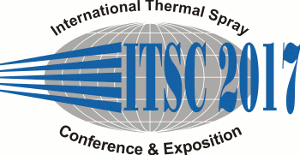
|
5550 |
|
Thursday, June 08, 2017, Hall 12 9:00 AM Automotive Industry |
|
New mechanical roughening process as surface preparation of engine cylinder bores before thermal spraying |
|
Clemens Verpoort / Ford-Werke GmbH
Research & Innovation Center Aachen, Germany A. Roffe* / Autocraft Drivetrain Solutions Ltd., Great Britain Gökmen Sanuk/ Gühring KG, Germany Matthias Joschko/ Gühring KG, Germany M. Kesting/ Ford-Werke GmbH, Germany T. Birkner/ Ford-Werke GmbH, Germany Mike Hague-Morgan/ Autocraft Drivetrain Solutions Ltd., United Kingdom M. Waiblinger/ N.N., Germany |
|
Several surface preparation techniques are being used like grit blasting, HP water jet roughening as well as mechanical roughening for the preparation of Aluminum cylinder bore surfaces before a thermal spray coating can be applied. However, in case of spray-repaired CI cast iron engine blocks the conventional mechanical roughening processes using cutting inserts with small dovetail-undercut geometry are not applicable due to the high hardness and high material toughness. Therefore such CI engine blocks are bored-oversize in order to remove the bore wear damage and subsequently this rough-machined surface is coated by a NiAl-bond coating material in order to provide sufficient bond strength for the top functional coating material. In this paper it will be demonstrated that the 2-step spray-repair process can be replaced by a single-step process by using a new diamond-roll-roughening method. This process leads to significant higher bond strength values than the conventional process including the bond coating material. PAT Adhesion test results as well as microstructural cross sections of coated cylinder bores will be presented. The principle of the roll-roughening process is outlined. |